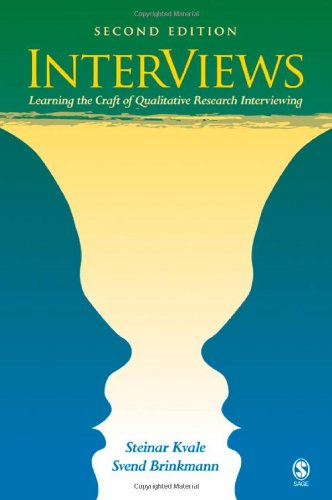

Most ebook files are in PDF format, so you can easily read them using various software such as Foxit Reader or directly on the Google Chrome browser.
Some ebook files are released by publishers in other formats such as .awz, .mobi, .epub, .fb2, etc. You may need to install specific software to read these formats on mobile/PC, such as Calibre.
Please read the tutorial at this link: https://ebookbell.com/faq
We offer FREE conversion to the popular formats you request; however, this may take some time. Therefore, right after payment, please email us, and we will try to provide the service as quickly as possible.
For some exceptional file formats or broken links (if any), please refrain from opening any disputes. Instead, email us first, and we will try to assist within a maximum of 6 hours.
EbookBell Team

4.0
36 reviewsTheFirst EditionofInterViewshas provided students and professionals in a wide variety of disciplines with the “whys” and “hows” of research interviewing, preparing students for learning interviewing by doing interviews and by studying examples of best practice. The thoroughly revisedSecond Editionretains its original seven-stage structure, continuing to focus on the practical, epistemological, and ethical issues involved with interviewing. Authors Steinar Kvale and Svend Brinkmann also include coverage of newer developments in qualitative interviewing, discussion of interviewing as a craft, and a new chapter on linguistic modes of interview analysis. Practical and conceptual assignments, as well as new “tool boxes,” provide students with the means to dig deeper into the material presented and achieve a more meaningful level of understanding. New to This Edition ·Includes new developments in qualitative interviewing:New materials cover narrative, discursive, and conversational analyses. ·Presents interviewing as a social practice:Knowledge produced by interviewing is discussed as linguistic, conversational, narrative, relational, situated, and pragmatic. ·Addresses a variety of interviews forms:In addition to harmonious, empathetic interviews, the authors also cover confrontational interviews. Intended Audience This text is ideal for both novice and experienced interview researchers as well as graduate students taking courses in qualitative and research methods in the social sciences and health sciences, particularly departments of Education, Nursing, Sociology, Psychology, and Communication.
Praise for the previous edition:
“I think this is one of the most in-depth treatments of the interview process that I have seen. The frank and realistic approach that the authors take to this topic is rather unique and will be very reassuring to researchers who are undertaking an interview study for the first time.”
—Lisa M. Diamond,Universityof Utah